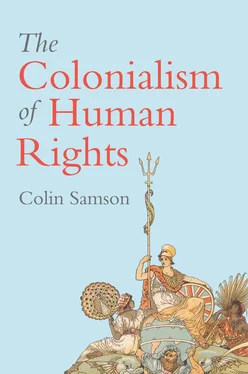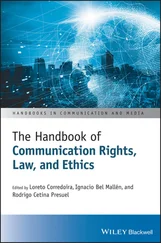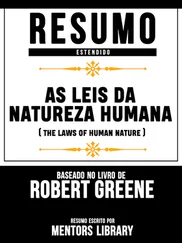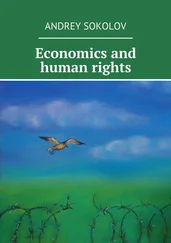While they each have different specific concerns and theses, many human rights scholars equate human rights with progress and show this with discrete indices and measures of liberal social, legal and political advances internationally. But, aware of the painful histories of colonialism and slavery, some are quick to situate all this in the post-World War II era. Jack Donnelly, a prominent human rights scholar, for example, commented that, although the West was in the past a purveyor of ‘racist imperialism’, the age of decolonization and more enlightened theoretical models have spelt its demise. Since World War II, ‘the rise of universal human rights presents a story of moral progress’. 104More recently, Kathryn Sikkink asserts that ‘human rights, as defined in current human rights law, provides a morally defensible starting place for talking about progressive change in the world’. 105Others, such as Kathryn McNeilly, believe that there are possibilities for re-engagement with human rights and the universality within them to realize radical and transformative potentials. 106This all presupposes that a line can be drawn under colonialism and enslavement and that, after the ‘sordid nature’ of it was revealed – as liberal human rights analyst Samuel Moyn contends – it ‘ultimately ended once and for all’. 107
For Moyn, in his most recent book, the French Revolution had ‘introduced human rights as a lingua franca of politics for modern states’, as well as initiating the humanitarian concern for social welfare. 108Although Moyn later notes ‘exclusions’ and is concerned more with how social welfare is abrogated through neoliberalism, the idea of progress and original European virtue implicitly remains. When he does proceed to analyse global politics of distributive justice as an aspect of human rights, Moyn begins not with colonialism but with the ‘postcolonial states’, as well as with the attempts of colonial powers to instil more concern with humanitarian welfare prior to decolonization. 109In Moyn’s upbeat narrative, these new states led the charge for global human rights and justice that the West had proposed through many international conventions and instruments, abetted by a host of mid-twentieth-century liberal scholars.
The inconsistencies between the espousal of this ‘new package’ so soon after Europe reluctantly released its grip on darker-skinned peoples did not go unnoticed among observers of decolonization. The reflections on the deep social, political, economic and psychological damage that colonialism inflicted in the eyes of anti-colonial activists and scholars contrast with human rights theorists’ buoyant optimism. While universal human rights were being declared in 1948, just after Europe had been ‘responsible for the highest heap of corpses in history’, 10Aime Césaire suspected that these rights were only enunciated because of the European tragedy of the Holocaust and World War II. Declarations of the magnitude of the UDHR had never been made in the contexts of European colonizing or enslaving. Although there were reformers and humanists among colonizers, their calls for change stopped well short of universal human rights, and when non-European peoples asserted claims to human rights by resisting colonialism and slavery, their aspirations were often violently denied. Even the founding meeting of the UN in San Francisco in 1945 explicitly rejected representations for decolonization or any specific enunciations of the rights of colonized peoples. While establishing universal human rights, the Preamble to the UN Charter authored by apartheid leader Jan Smuts did not disavow apartheid or Empire. 111
Given the colossal human rights deficit accumulated by the colonial powers and settler colonial states, can the slate be wiped clean by enunciations, aspirations and examples of progress? Can the undoubted success of some social movements to deploy human rights to reverse numerous adversities be seen as having great potential for social change, or is there something more structurally embedded within the European colonizing experience that makes the link between colonialism and the denial of human rights persist? Can we speak of a colonialism of human rights? Equally important is how states built on colonization and slavery can extend meaningfully enforced human rights to those who were categorically excluded from such rights, and upon whose exclusions settler states were shaped. ‘An absolute and immense democracy is not all we find in America’, Alexis de Tocqueville tells readers at the outset of the final ‘Three Races’ chapter of Democracy in America . 112As a consequence of Africans and Native Americans being situated outside democracy, he thought that conflict would persist in the USA because democratic rights only applied to the European population. It might not be much of a stretch to consider that similar provisos need to be made about ‘universal’ human rights.
1 1 Césaire (1955: 37).
2 2 Mazower (2009: 21, 53).
3 3 Mills (1997: 4).
4 4 See Mouffe (2013: 30–9).
5 5 Moore (1978).
6 6 Sen (2012: 10).
7 7 Mills (2017: 91–112).
8 8 Buck-Morss (2000: 844).
9 9 Kaisary (2012: 198).
10 10 Araujo (2017: 57).
11 11 Armitage (2012: 90).
12 12 Rousseau (1966 [1791]: 9–13).
13 13 Edelstein (2019: 128–30).
14 14 Mills (1997: 14–16; 2017: 29).
15 15 Locke (1965) [1689]: 325–44).
16 16 Cronon (1983: 55).
17 17 Todorov (2009: 15–16).
18 18 Conklin (1997).
19 19 Conklin (1998: 433–4).
20 20 Benton and Slater (2015: 140).
21 21 Loukaides (2007: 32).
22 22 Sweeney (2018).
23 23 Weber (1958 [1919]: 77–128).
24 24 Weber (1958) [1919]: 85).
25 25 Agamben (1995, 2005).
26 26 Agamben (2005: 2).
27 27 Marx (1978a [1843]).
28 28 Quoted by Langer (1969: 72).
29 29 Arendt (1968: 123–57).
30 30 Arendt (1968: 124).
31 31 Jackson (2007: 45, 109).
32 32 Quoted by Jackson (2007: 244).
33 33 Hanchard (2018: 70).
34 34 Gagarin (1982).
35 35 Hanchard (2018: 71, 105, 186).
36 36 Tully (2012: 11–12).
37 37 Cooper (2018: 58–62, 97).
38 38 Du Bois (1969b [1896]: 4).
39 39 Draper (2010: 87).
40 40 My simple calculation of £2.57 billion was made through this website: www.in2013dollars.com/uk/inflation/1834?amount=20000000. Using calculations that make different assumptions, Draper arrives at £13 billion and £76 billion: Draper (2010: 106–7).
41 41 Draper (2007: 78).
42 42 Draper (2007).
43 43 Draper (2007: 78).
44 44 Further detail is provided by the Legacies of British Slave Ownership project at University College London (n.d.). See also Draper (2018).
45 45 Mamdani (2012: 7).
46 46 Stokes (1959: xiii–xiv).
47 47 Mill (1975a [1859]: 16).
48 48 Mill (1975b [1861]: 281).
49 49 Stokes (1959: 69).
50 50 Garrett (1970 [1916]: 2, 26).
51 51 Geggus (1989: 1295).
52 52 Geggus (1989: 1296).
53 53 Hunt (1996: 26).
54 54 See Geggus (1989: 1304–5), Kaisary (2012).
55 55 Tocqueville (2001b [1841]: 111).
56 56 Morris (2016: 102–3).
57 57 Morris (2015: 60).
58 58 Morris (2015: 14).
59 59 United Nations, Human Rights, Office of the High Commissioner (2018a).
60 60 Equality and Human Rights Commission (2018).
61 61 Toh (2019).
62 62 Human Rights Watch (2019).
63 63 United Nations, Human Rights, Office of the High Commissioner (2017).
64 64 Jarvie (2018).
65 65 Walker (2018).
66 66 Benton (2006: 27).
67 67 Equality and Human Rights Commission (2018).
68 68 Spohn (2015: 53).
69 69 Stoler (2016: 133).
Читать дальше












